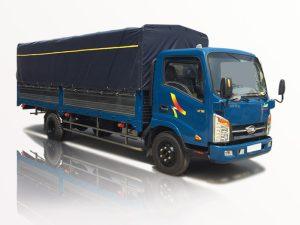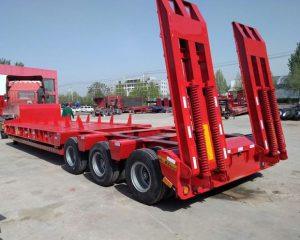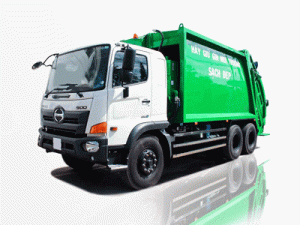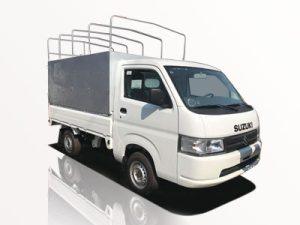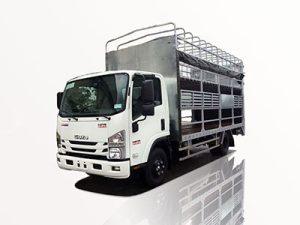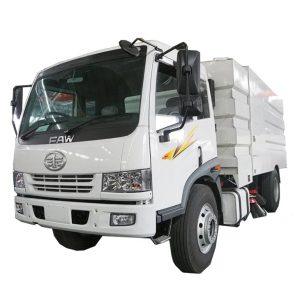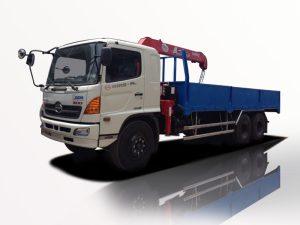Monday to Saturday - 8:00 -17:30
Sewer Cleaner Truck: The Essential Vehicle for Efficient Waste Management
Sewer cleaner trucks play a vital role in maintaining public health and environmental standards by ensuring that our waterways and sewage systems remain clear of blockages and pollutants. This article will delve into the functionality, benefits, types, and maintenance of sewer cleaner trucks, providing practical tips and comprehensive insights for those in the industry or interested in municipal waste management.
Understanding Sewer Cleaner Trucks
What is a Sewer Cleaner Truck?
A sewer cleaner truck is a specialized vehicle designed to clean and maintain sewer systems and pipelines. Equipped with a powerful vacuum system and high-pressure water jets, these trucks remove debris, silt, grease, and other obstructions from sewer lines. They help to prevent clogs and backups, which can lead to severe environmental and health issues.
How Sewer Cleaner Trucks Work
Sewer cleaner trucks operate through two main systems: a vacuum system and a water jetting system. The vacuum system draws waste and debris from the sewer lines into a holding tank, while the water jetting system utilizes high-pressure water jets to break down tough blockages and clean the pipe walls. A typical sewer cleaning operation involves:
- Setting up at the entry point of a sewer line.
- Using the water jet to clear heavy obstructions.
- Employing the vacuum system to extract the debris and wastewater.
- Transporting the waste to an appropriate disposal site.
Types of Sewer Cleaner Trucks
1. Combination Trucks
Combination trucks integrate vacuum and jetting capabilities into a single unit, making them versatile for various cleaning tasks. They are ideal for routine maintenance and emergency clean-up.
2. Vacuum Trucks
Vacuum trucks focus solely on suctioning debris from sewer lines. They are suitable for sucking up liquid waste, sludge, and other material from accessible locations.
3. Jetting Trucks
Jetting trucks feature powerful jetting systems but lack vacuum capabilities. They are primarily used for cleaning clogged lines and removing buildup from the pipe walls.
Comparison Table of Different Types of Sewer Cleaner Trucks
| Type | Functionality | Best Use |
|---|---|---|
| Combination Truck | Vacuum and high-pressure water jetting | Routine maintenance, emergency cleaning |
| Vacuum Truck | Vacuum suction only | Liquid waste recovery |
| Jetting Truck | High-pressure water jetting | Clear blockages and clean pipes |
Benefits of Using Sewer Cleaner Trucks
1. Enhanced Public Health
Regular maintenance of sewer systems prevents sewer overflows that can pose health risks to communities. Sewer cleaner trucks help reduce the incidence of such events.
2. Environmental Protection
By effectively managing sewage and waste, sewer cleaner trucks protect local water bodies from pollution, preserving aquatic ecosystems and promoting cleaner water sources.
3. Cost Efficiency
Investing in sewer cleaner trucks minimizes the need for costly emergency repairs and mitigates the risk of extensive damage resulting from sewer failures.
4. Increased Efficiency
Modern sewer cleaner trucks are equipped with advanced technology that allows for faster and more efficient cleaning of sewer systems, reducing downtime for municipalities.
Practical Examples of Sewer Cleaner Truck Uses
1. Municipal Wastewater Management
Cities can maintain efficient wastewater management by employing sewer cleaner trucks for regular inspections and cleaning activities, thereby ensuring effective fluid flow.
2. Emergency Response
During emergencies such as heavy storms or sewer collapses, sewer cleaner trucks are rapidly deployed to mitigate flooding and prevent wastewater contamination in residential areas.
3. Industrial Applications
Industries often generate significant waste, necessitating the use of sewer cleaner trucks for the safe and compliant disposal of hazardous waste materials.
Maintenance of Sewer Cleaner Trucks
1. Routine Inspections
Regular inspections help identify wear and tear on components such as hoses, tanks, and pumps, ensuring the vehicle is in good working condition.
2. Cleaning Protocols
After each use, the truck should be washed down, and components should be cleaned to prevent corrosion and buildup of residues.
3. Fluid Checks
Maintaining optimal fluid levels, including fuel, oil, and hydraulic fluids, ensures that the truck operates efficiently and prolongs its lifespan.
4. Scheduled Maintenance
Engaging with professionals for scheduled servicing can prevent unexpected breakdowns and costly repairs, keeping the truck operationally ready.
Choosing the Right Sewer Cleaner Truck
1. Assess Your Needs
Understand the specific requirements of your cleaning projects, such as the type of environment, necessary capacity, and the severity of blockages you encounter.
2. Budget Considerations
Determine your budget, including not only the upfront cost of the truck but also ongoing maintenance and operational costs.
3. Research Manufacturers
Investigate reputable manufacturers who provide quality vehicles with reliable support and available parts to ensure longevity and performance.
Using Technology in Sewer Cleaning
1. GPS and Mapping Software
Modern sewer cleaner trucks often come equipped with GPS and mapping technology, allowing operators to effectively plan cleaning routes and improve efficiency.
2. Camera Inspection Systems
High-definition camera systems allow for real-time inspections of sewer lines, helping identify issues before they become significant problems.
3. Data Analytics
Data collected during cleaning operations can be analyzed to improve future maintenance schedules and identify problem areas within the sewer system.
Common Challenges in Sewer Cleaning
1. Blockages from Foreign Objects
Inappropriate disposal of items like wipes, toys, and food can lead to severe blockages. Continued education on proper waste disposal is vital.
2. Aging Infrastructure
Older sewer systems may be more prone to breakage and sediment accumulation, requiring more frequent cleaning and maintenance efforts.
3. Funding Limitations
Municipalities may face budget constraints that limit their ability to maintain and upgrade sewer cleaning equipment effectively.
Frequently Asked Questions (FAQ)
1. What is the average lifespan of a sewer cleaner truck?
The average lifespan of a sewer cleaner truck ranges from 7 to 10 years, depending on usage, maintenance, and manufacturer quality.
2. How often should sewer cleaning be performed?
It is recommended to perform sewer cleaning every 1 to 2 years, but this frequency may increase based on specific conditions and usage rates in the area.
3. Can sewer cleaner trucks handle hazardous waste?
Yes, there are specially designed sewer cleaner trucks that can safely handle hazardous waste materials, complying with local regulations.
4. Is it necessary to hire a professional service for sewer cleaning?
While homeowners can manage minor blockages, it is advisable to hire a professional service for extensive cleaning needs to ensure proper technique and equipment are used.
5. What should be done if a sewer backup occurs?
If a sewer backup occurs, immediately contact a professional plumber or local municipal service to prevent further damage and health risks.
6. Are there environmentally friendly options for sewer cleaning?
Yes, some sewer cleaning trucks utilize eco-friendly methods and products, such as biodegradable cleaning agents, to minimize environmental impact.



